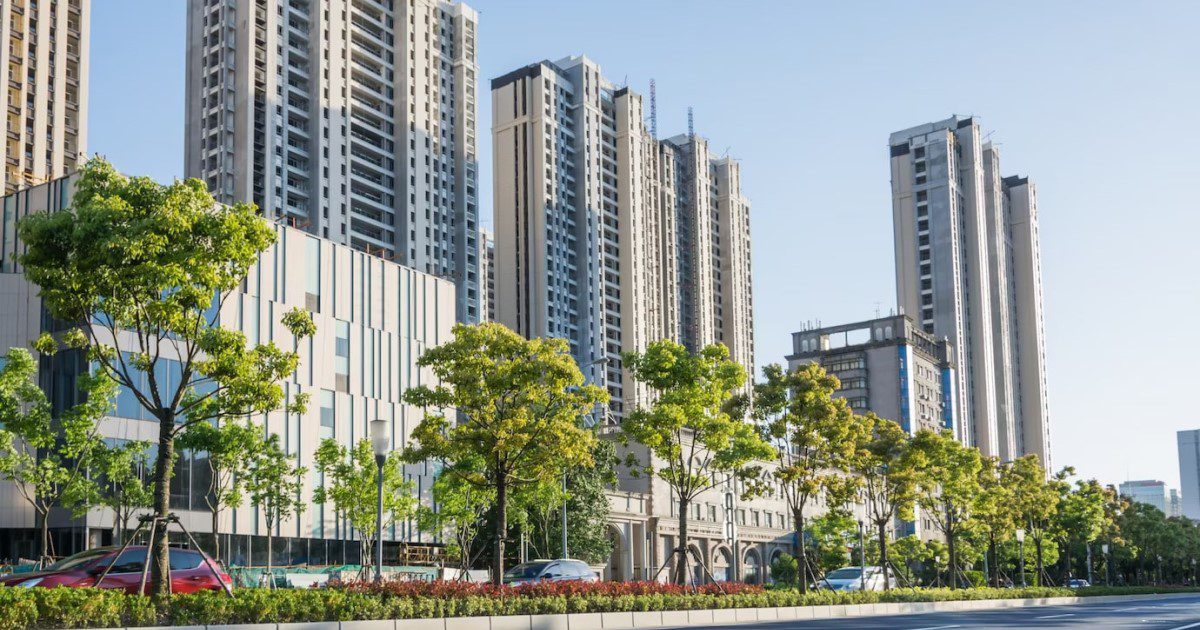SINCE 1988
203-546-7793

Understanding the intricacies of commercial real estate for lease is paramount for businesses looking to establish or expand their presence. This guide dives deep into the essential elements every potential lessee should consider.
The right location can propel a business to new heights, ensuring optimal visibility, accessibility, and growth potential. As businesses embark on the journey to find the perfect commercial real estate for lease, understanding the nuances of location becomes paramount.
When considering commercial real estate for lease, it’s crucial to have a local perspective. With its unique blend of commercial and residential areas, Newtown, CT offers diverse opportunities. However, understanding the intricacies of the local market can be challenging.
Consulting with Tower Realty Corp can provide invaluable insights for businesses looking to find the perfect location in Newtown, CT. Their expertise in the local commercial real estate for lease market ensures businesses can secure prime locations that align with their goals.
When it comes to commercial real estate for lease, it’s essential to recognize that not all leases are created equal. Different lease structures cater to various business needs and financial models.
Understanding the type of lease is just the starting point. It’s equally crucial to grasp each lease type’s financial and operational implications.
When navigating the complex landscape of commercial real estate for lease, businesses must align their operational needs, financial capabilities, and growth plans with the lease type. Understanding each lease’s nuances can prevent unforeseen challenges and costs.
The length of your lease can have significant implications for your business strategy and financial planning. When it comes to commercial real estate for lease, lease durations can vary widely.
Having the option to renew your lease can be a strategic advantage. It provides a balance between commitment and flexibility.
Navigating the intricacies of lease durations and renewal options in commercial real estate for lease can be complex. Making informed decisions requires a deep understanding of the market, legal implications, and future business projections.
For businesses seeking the ideal lease terms in Newtown, CT, Tower Realty Corp offers unparalleled expertise. Their deep knowledge of the local commercial real estate for lease market ensures businesses can negotiate lease terms that align perfectly with their long-term goals.

When it comes to commercial real estate for lease, the rent amount often becomes the focal point. However, it’s more than just a monthly expense; it reflects the property’s value, location, and market demand.
Several elements come into play when determining the rent for commercial real estate for lease.
The way rent is structured can have significant implications for a business’s financial planning and cash flow.
Rent negotiations aren’t just about the monthly amount but encompassing the entire lease’s financial implications. By understanding the intricacies of rent calculations and structures, businesses can position themselves for successful negotiations in the commercial real estate for lease market.
When considering commercial real estate for lease, it’s essential to look beyond the sheer size of the space. The layout and configuration are pivotal in determining if the property aligns with a business’s operational needs.
Open spaces offer flexibility and collaboration, while closed layouts provide privacy and compartmentalization.
Consider how employees and customers will move through the space. Is there a logical flow to the layout?
Every business has unique needs, and the ability to customize a leased space can be a significant advantage in commercial real estate for lease.
While prioritizing aesthetics is tempting, functionality should be at the forefront when considering space configuration in commercial real estate for lease. A well-designed space can enhance productivity, improve customer experiences, and reflect the brand’s identity.
Maintaining a commercial property is crucial for aesthetics, safety, and functionality. When diving into commercial real estate for lease, understanding who shoulders these responsibilities can prevent future disputes and unexpected costs.
Structural maintenance includes foundational and roofing repairs, while non-structural pertains to aspects like plumbing, electrical systems, and cosmetic repairs.
Lease agreements in commercial real estate for lease often have detailed clauses outlining maintenance responsibilities. It’s essential to dissect these clauses to understand the obligations.
Repairs can be unpredictable, and how they’re handled in commercial real estate for lease can significantly impact a business’s operations.
Navigating the complexities of maintenance and repair responsibilities in a lease can be daunting. Misunderstandings can lead to disputes, unexpected costs, and disruptions.
Tower Realty Corp offers unparalleled expertise for businesses seeking clarity on maintenance clauses in Newtown, CT. Their seasoned team can guide tenants through the intricacies of commercial real estate for lease agreements, ensuring a smooth and transparent leasing experience.
Business landscapes are ever-evolving, and there might come a time when a company needs to exit its commercial real estate for lease before the lease term ends. Understanding exit and termination clauses is crucial to safeguarding a business’s interests.
Business growth or downsizing, market shifts, or even mergers and acquisitions can necessitate a change in commercial space.
Termination clauses in commercial real estate for lease agreements outline the conditions under which a lease can be ended prematurely.
Exiting a commercial real estate for lease agreement should be approached with caution and foresight.
While no business enters a commercial real estate for lease agreement expecting to exit early, preparing for such scenarios can prevent legal disputes, financial losses, and reputational damage.
Amenities can significantly enhance a property’s appeal in the competitive landscape of commercial real estate for lease. They not only add convenience but can also boost employee morale and customer satisfaction.

Features like dedicated parking, security systems, fitness centers, and shared conference rooms can elevate the overall experience of a commercial space.
With the rise of digital business operations, amenities like high-speed internet, advanced security systems, and smart building features are becoming increasingly sought after.
Beyond the standard clauses, commercial real estate for lease agreements might include additional provisions that can impact a tenant’s rights and responsibilities.
While amenities and additional provisions can add significant value to commercial real estate for lease, balancing these benefits against potential cost implications is essential.
When considering commercial real estate for lease, looking beyond the base rent and square footage is essential. Amenities and additional provisions play a pivotal role in determining a property’s overall value and suitability for a business’s unique needs.
While both types of leases allow tenants to rent a property, commercial leases are designed for business purposes, such as offices, retail spaces, or warehouses. Residential leases are for personal living spaces like apartments or homes. Commercial leases often have longer durations, more complex terms, and can be more negotiable than residential leases.
Rent for commercial properties is often calculated based on a price per square foot. For example, if a property is listed at $20 per square foot and you’re leasing 2,000 square feet, your annual rent would be $40,000.
It varies by lease. In some commercial leases, utilities are included in the rent; in others, the tenant is responsible for them. It’s essential to clarify this in the lease agreement.
Subleasing depends on the terms of your lease. Some commercial leases allow for subleasing, while others prohibit it. Review your lease agreement and consult with the landlord or property manager if you’re considering subleasing.
Terminating a commercial lease early can result in penalties, which should be outlined in the lease agreement. Penalties might include forfeiting your security deposit, paying the remaining lease balance, or other financial implications.
Finding the perfect commercial space for your business can be daunting, filled with complexities and nuances. But you don’t have to navigate this journey alone. Tower Realty Corp brings unparalleled expertise and a deep understanding of the Newtown, CT, market, ensuring you find a space that aligns with your business goals.





